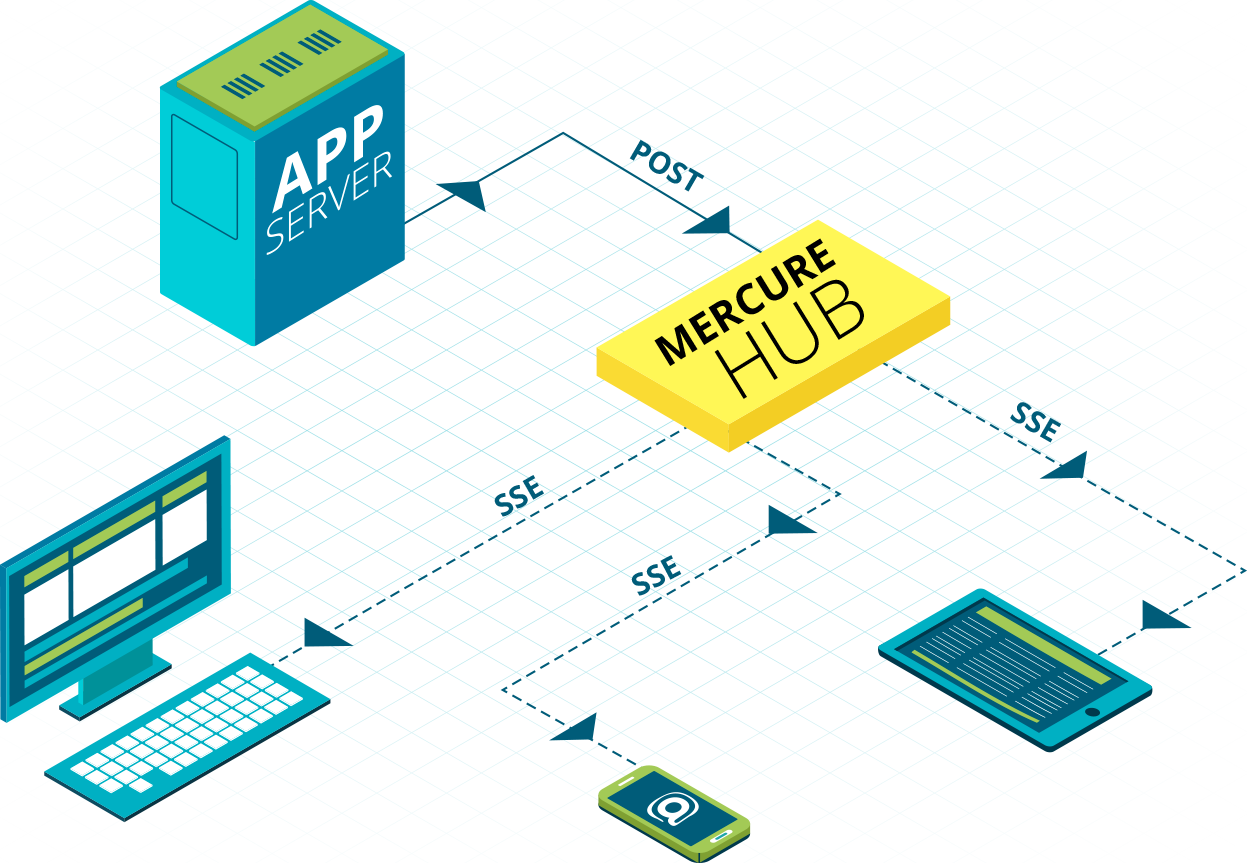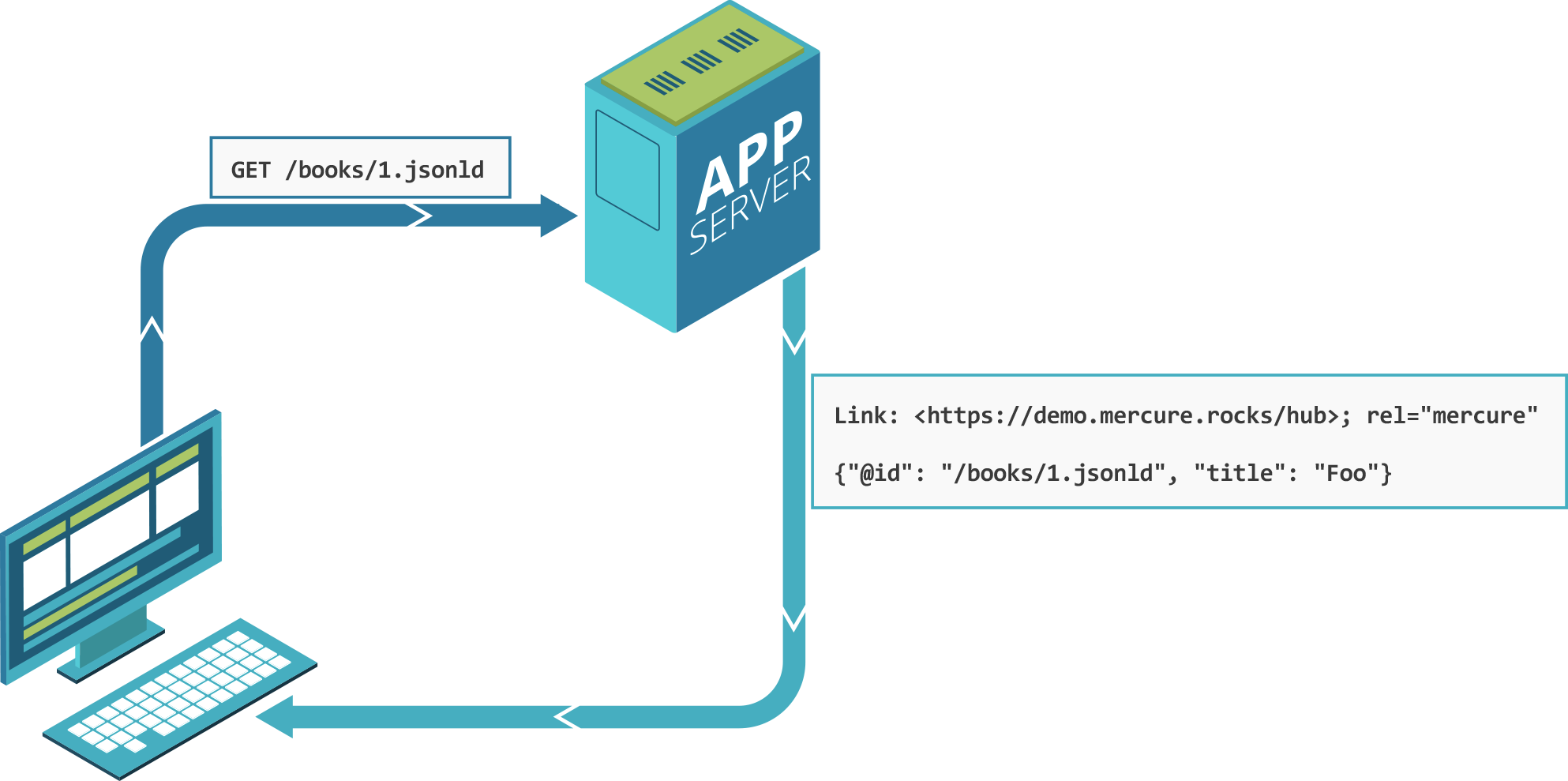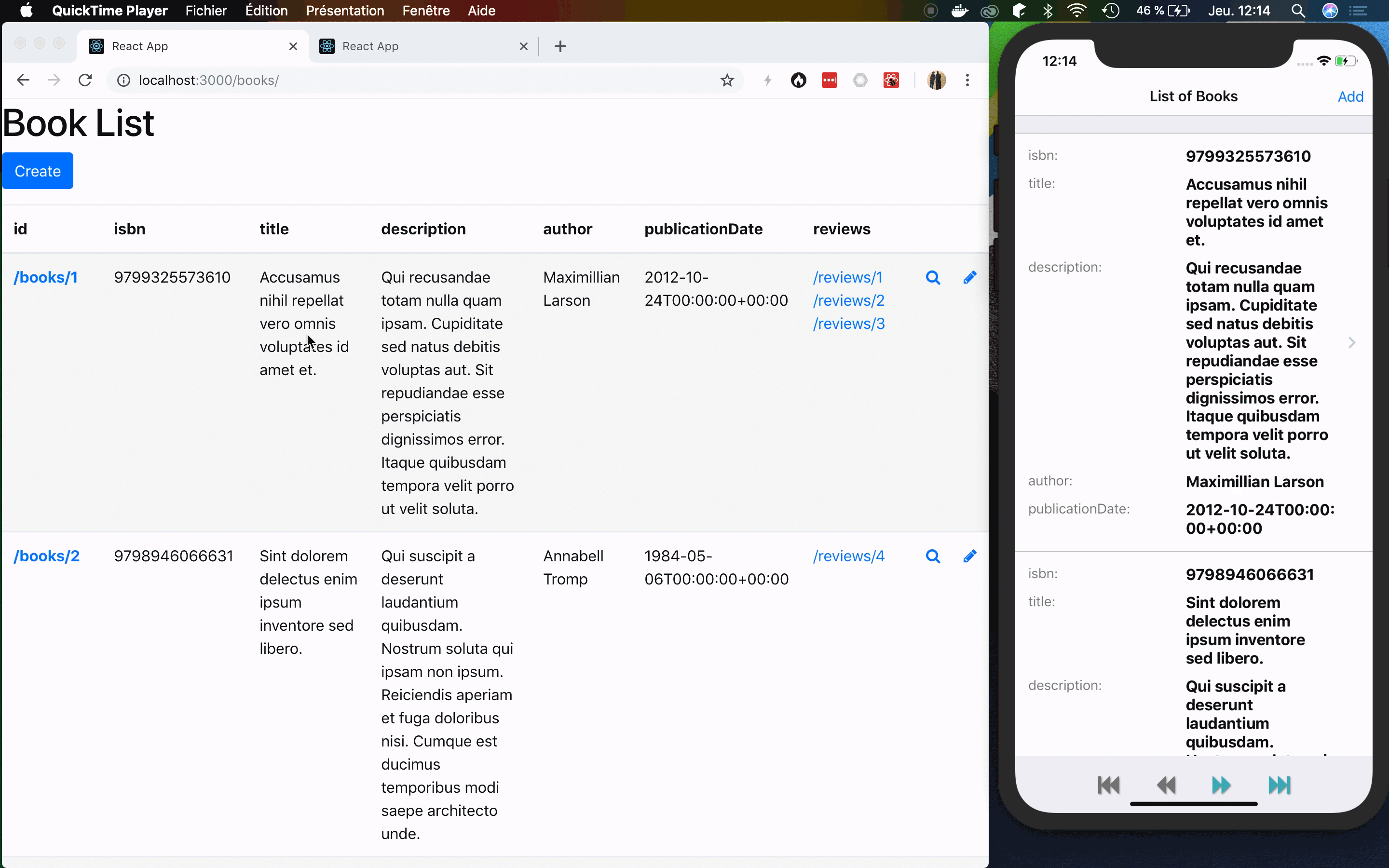Creating Async APIs using the Mercure Protocol
API Platform can automatically push the modified version of the resources exposed by the API to the currently connected clients (webapps, mobile apps…) using the Mercure protocol.
Mercure is a protocol allowing to push data updates to web browsers and other HTTP clients in a convenient, fast, reliable and battery-efficient way. It is especially useful to publish real-time updates of resources served through web APIs, to reactive web and mobile apps.
—https://mercure.rocks
API Platform detects changes made to your Doctrine entities, and sends the updated resources to the Mercure hub. Then, the Mercure hub dispatches the updates to all connected clients using Server-sent Events (SSE).

Installing Mercure Support
Mercure support is already installed, configured and enabled in the API Platform distribution. If you use the distribution, you have nothing more to do, and you can skip to the next section.
If you have installed API Platform using another method (such as composer require api), you need to install a Mercure hub, and the Symfony MercureBundle:
First, download and run a Mercure hub. Then, install the Symfony bundle:
$ composer require mercure
Finally, 3 environment variables must be set:
MERCURE_PUBLISH_URL: the URL that must be used by API Platform to publish updates to your Mercure hub (can be an internal or a public URL)MERCURE_SUBSCRIBE_URL: the public URL of the Mercure hub that clients will use to subscribe to updatesMERCURE_JWT_TOKEN: a valid Mercure JSON Web Token (JWT) allowing API Platform to publish updates to the hub
The JWT must contain a mercure.publish property containing an array of topic selectors.
This array can be empty to allow publishing anonymous updates only. It can also be ["*"] to allow publishing on every topics.
Example publisher JWT (demo key: !ChangeMe!).
Learn more about Mercure authorization.
Pushing the API Updates
Use the mercure attribute to hint API Platform that it must dispatch the updates regarding the given resources to the Mercure hub:
<?php
// api/src/Entity/Book.php
namespace App\Entity;
use ApiPlatform\Core\Annotation\ApiResource;
/**
* @ApiResource(mercure=true)
*/
class Book
{
// ...
}
Then, every time an object of this type is created, updated or deleted, the new version is sent to all connected clients through the Mercure hub. If the resource has been deleted, only the (now deleted) IRI of the resource is sent to the clients.
In addition, API Platform automatically adds a Link HTTP header to all responses related to this resource class.
This header allows smart clients to automatically discover the Mercure hub.

Clients generated using the API Platform Client Generator will use this capability to automatically subscribe to Mercure updates when available:

Learn how to use the discovery capabilities of Mercure in your own clients.
Dispatching Private Updates (Authorized Mode)
Mercure allows to dispatch private updates, that will be received only by authorized clients. To receive this kind of updates, the client must hold a JWT containing at least one target selector matched by the update.
Then, use options to mark the published updates as privates:
<?php
// api/src/Entity/Book.php
namespace App\Entity;
use ApiPlatform\Core\Annotation\ApiResource;
/**
* @ApiResource(mercure={"private": true})
*/
class Book
{
// ...
}
It’s also possible to execute an expression (using the Symfony Expression Language component), to generate the options dynamically:
<?php
// api/src/Entity/Book.php
namespace App\Entity;
use ApiPlatform\Core\Annotation\ApiResource;
/**
* @ApiResource(mercure="object.mercureOptions")
*/
class Book
{
public $mercureOptions = ['private' => true];
// ...
}
Available Options
In addition to private, the following options are available:
topics: the list of topics of this update, if not the resource IRI is useddata: the content of this update, if not set the content will be the serialization of the resource using the default formatid: the SSE id of this event, if not set the ID will be generated by the mercure Hubtype: the SSE type of this event, if not set this field is omittedretry: theretryfield of the SSE, if not set this field is omitted
You can also help us improve the documentation of this page.
